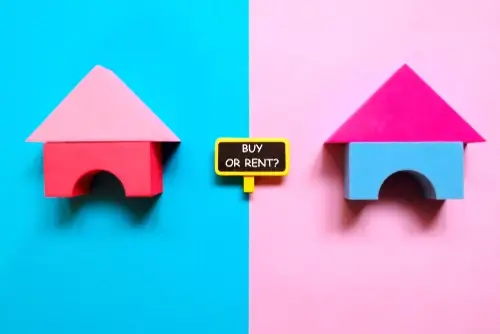
As you embark on the journey of acquiring a VA loan, the U.S. Department of Veterans Affairs (VA) bestows upon you a unique and potent financial instrument. VA loans are celebrated for their generous terms, such as minimal or even non-existent down paymen
Apr 02, 2024 | VA Loans

Embarking on the exciting adventure of relocating to a new city brings with it a cascade of decisions, and one of the most pivotal choices revolves around the fate of your current home. The question looms large: Should you rent it out or sell it? Each ave
Mar 26, 2024 |

Buying a home is a significant milestone in anyone's life, but for educators, the journey might feel like a complex lesson plan. Thankfully, there are tailored home loan options designed to make this process smoother for teachers who dedicate their lives
Mar 19, 2024 | Purchasing a Home

Are you envisioning the transformation of your outdated fixer-upper into the home of your dreams? Are you on the hunt for a house with hidden potential, but concerned about the financial burden of renovations? Look no further, my friend. Allow me to intro
Mar 12, 2024 | Refinancing a Home

In the intricate dance of acquiring a mortgage, your credit score takes center stage, dictating the interest rate that can either make your dreams of homeownership a reality or a financial challenge. Understanding the dynamics between your credit score an
Mar 05, 2024 | Interest Rates

Let's explore how mortgage assistance programs can help you obtain the funding to turn your dream into a reality. The Pursuit of Homeownership Imagine the thrill of stepping into your very first home—a space that's yours to make your own. For first-
Feb 27, 2024 | Purchasing a Home
Don’t Get a Mortgage from a Company that has “Bank” in its name
When buying or refinancing a home, most people don’t even know the first place to start the process. While some may know someone that knows someone, the majority turn to a bank that they have dealt with in the past or an advertisement they see on television for their first call. Others will turn to the internet and take a shot in the dark to see if they hit the target. Unfortunately for these people, after everything is said and “closed”, they realistically didn’t ever have a chance to really see the target. With all of the marketing gimmicks that you see (No closing costs, no money down, $5000 incentive if you pick this lender….. Blah, Blah, Blah!!!!!!), it is very difficult to understand what is the best path and the most sound financial decision when buying a home.
Before the crash in 2009, everybody played the rate game with lenders, and whoever gave the borrower the best rate won. What most people didn’t realize was that the higher the rate, the more money the bank would make. This was called a yield spread premium. The higher the rate, the higher the yield in the bank’s pocket. Well, that is not the case anymore. The best rate is not always the best decision. Since the controversial “Dodd Frank Act”, the rules have changed drastically, and what most do not realize, this is what changed the game for consumers in a very positive way. Instead of the bank getting paid more when they charge a higher rate, now the homebuyer gets the paycheck the bank used to get to put towards their own closing costs. Yield Spread premium is now called a “Lender Credit”. This means that you can now decide on the rate that best fits your financial situation. For example, at 4% interest on a 30 year conventional mortgage the lender will pay 1% of the loan amount towards your closing costs. If the rate is moved to 4.25%, then the lender will pay back 1.25% of the loan amount. At 4.5% they may credit you 1.5% and so on. Based on a $100,000 loan the credits to you would be $1000, $1250 and $1500 respectively.
How does this help you?
For someone that may have little money to put down at closing, taking a higher rate would enable them now to have the lender pay for some of the closing costs. On higher loan amounts, all of the closing costs can be paid by the lender. This enables many people that couldn’t buy a home before the crash to have many more options to be able to buy now because they do not have to bring as much money to the table.
NOW HERE IS THE KICKER!!!!!
All of the gimmicks that I mentioned above (No closing costs, no money down, $5000 incentive if you pick this lender….. Blah, Blah, Blah!!!!!!), well those are all based on the Lender Credit. As a broker, I am required by law to disclose the amount of lender credit for each rate, but the banks are not.
What does this mean?
This means that the bank can hide the money from you and put it in their pocket. This is how they advertise no closing costs or special incentives to use them. They are just raising your rate to cover everything without you having a say in what you want to do. If they are not offering incentives or showing a lender credit on your loan estimate, then, well they are just raking you over the coals. If you use a broker, that money is always yours, end of story.
The law has again allowed banks to be dishonest with your money. By using a broker, you will always know where every penny of your money is used.
Daniel Cason Lonestar Mortgage Solutions Texasmortgagedc.com